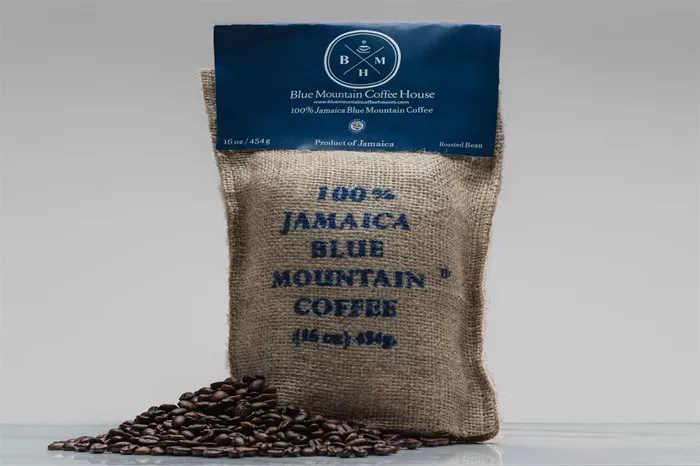Jamaica Blue Mountain coffee stands as one of the most prestigious and sought-after coffee varieties globally. Its reputation precedes it, often being hailed as the epitome of luxury in the coffee world. However, with great quality comes a hefty price tag. The question remains: why exactly is Jamaica Blue Mountain coffee so expensive? In this comprehensive exploration, we delve into the intricacies of its cultivation, production, and market dynamics to unravel the mystery behind its premium pricing.
The Geographical Advantage
The first aspect that contributes to the exclusivity of Jamaica Blue Mountain coffee is its unique geographical location. Nestled within the lush, misty slopes of the Blue Mountains in Jamaica, this coffee is cultivated in an environment that is both rare and ideal for coffee cultivation.
Ideal Altitude and Climate Conditions
The Blue Mountains provide the perfect combination of altitude, soil composition, and climate necessary for coffee plants to thrive. Coffee grown at higher altitudes tends to mature more slowly, resulting in denser beans with more complex flavors. The moderate temperatures and ample rainfall in this region further enhance the quality of the coffee cherries, resulting in a superior product.
Limited Growing Area
Furthermore, the cultivation of Jamaica Blue Mountain coffee is limited to a specific region, encompassing only around 15,000 acres of land. This restricted growing area, coupled with stringent regulations enforced by the Jamaican government, ensures that only the highest-quality coffee beans bearing the prestigious Blue Mountain label make it to the market. Such exclusivity inherently drives up the price of the coffee.
Meticulous Cultivation Practices
The cultivation of Jamaica Blue Mountain coffee is characterized by meticulous attention to detail and traditional farming methods passed down through generations. From planting to harvesting, every step is carefully executed to maintain the integrity and quality of the coffee beans.
Handpicked Selection Process
One of the defining features of Jamaica Blue Mountain coffee production is the labor-intensive process of handpicking the coffee cherries. Unlike machine harvesting, which can result in a mixture of ripe and unripe cherries, handpicking ensures that only the ripest cherries are selected. This painstaking process requires skilled laborers who meticulously inspect each cherry before harvest, contributing to the overall cost of production.
Shade-Grown Cultivation
Another distinguishing factor is the practice of shade-grown cultivation. In the Blue Mountains, coffee plants are often grown under the shade of native trees, mimicking the natural forest ecosystem. This not only helps regulate temperature and moisture levels but also encourages biodiversity and soil conservation. However, the slower growth rate associated with shade-grown coffee means lower yields, further adding to the cost of production.
Rigorous Quality Control Standards
The reputation of Jamaica Blue Mountain coffee hinges on its unparalleled quality, which is safeguarded by stringent quality control measures implemented throughout the production process. From processing to grading, every batch of coffee undergoes rigorous scrutiny to ensure it meets the exacting standards set forth by the Coffee Industry Board of Jamaica.
Wet Processing Method
Following harvest, the coffee cherries undergo a meticulous wet processing method, which involves pulping, fermentation, washing, and drying. This method helps preserve the inherent flavors of the beans while minimizing defects. The use of clean water and precise fermentation times are essential to achieving the desired flavor profile characteristic of Jamaica Blue Mountain coffee.
Grading and Certification
Once dried, the coffee beans are subjected to thorough grading based on size, shape, density, and flavor characteristics. Only beans that meet the stringent criteria outlined by the Coffee Industry Board are granted the prestigious Jamaica Blue Mountain classification. This certification acts as a guarantee of quality and authenticity, commanding a premium price in the market.
Limited Supply and High Demand
The combination of limited supply and high demand is perhaps the most significant factor driving up the price of Jamaica Blue Mountain coffee. Its reputation for exceptional quality and unique flavor profile has garnered a dedicated following among coffee connoisseurs and aficionados worldwide.
Global Appeal and Prestige
Jamaica Blue Mountain coffee enjoys a global reputation for excellence, with demand far exceeding the limited supply available. Its association with luxury and exclusivity further enhances its appeal among discerning consumers willing to pay a premium for the finest coffee experience. As a result, competition for this coveted commodity drives prices upward.
Export Restrictions and Price Controls
To preserve the integrity and reputation of Jamaica Blue Mountain coffee, the Jamaican government imposes strict regulations on its exportation and pricing. Export quotas and price controls are enforced to prevent overexploitation and maintain the exclusivity of the product. While these measures ensure the quality and authenticity of the coffee, they also contribute to its elevated price point.
Conclusion
In conclusion, the high price of Jamaica Blue Mountain coffee can be attributed to a combination of factors, including its unique geographical advantages, meticulous cultivation practices, rigorous quality control standards, limited supply, and high demand. As a symbol of luxury and prestige in the world of coffee, it commands a premium price commensurate with its exceptional quality and exclusivity. While it may not be accessible to all, for those who appreciate the finer things in life, Jamaica Blue Mountain coffee represents the pinnacle of coffee perfection.


